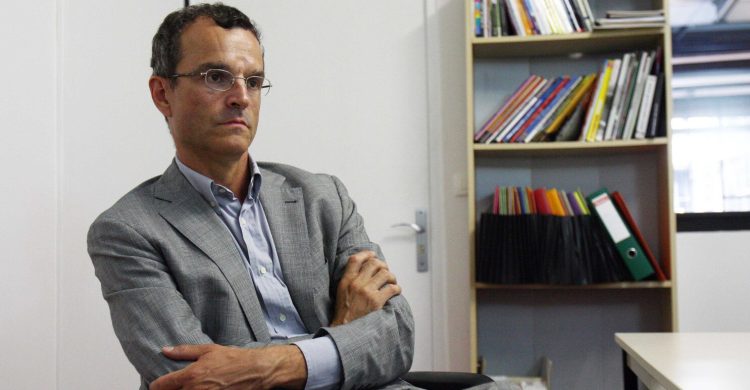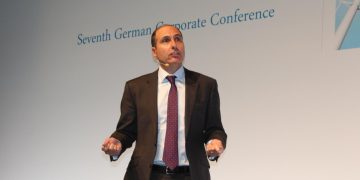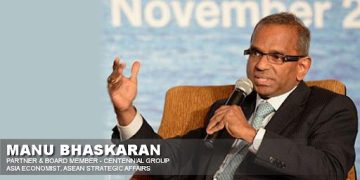1. Introduction: The Moral Dimension of Finance
In 2025, global finance operates at unprecedented speed and scale.
High-frequency trading algorithms execute millions of transactions per second, hedge funds manage portfolios worth trillions, and institutional investors dominate capital allocation across continents.
Yet Thierry Philipponnat, French economist and advocate for financial responsibility, warns that efficiency has come at a human cost.
The pursuit of profit and liquidity often overshadows ethical considerations, creating systemic vulnerabilities and societal inequities.
This essay explores the ethical challenges of modern finance, the rise of sustainable investment paradigms, and the pressing need for governance frameworks that reconcile profit with public good.
2. Financialization and the Social Contract
Finance is no longer merely a sector; it is a driver of the global economy, influencing wages, investment, and policy.
Philipponnat argues that financial institutions have become detached from their social purpose, focusing on short-term returns rather than long-term sustainability.
- Corporate behavior: Companies prioritize shareholder value, often at the expense of employees, communities, and the environment.
- Market pressures: Quarterly reporting cycles and activist investors intensify short-termism.
- Global inequality: Wealth accumulation concentrates in a small elite, while broad segments of society face stagnation or debt stress.
The social contract of finance — the implicit agreement that capital serves society — is fraying.
Philipponnat contends that a redefinition of fiduciary duty is essential: investors and institutions must balance profit with social and environmental responsibility.
3. ESG Investing: Promise and Paradox
Environmental, Social, and Governance (ESG) investing has emerged as a dominant trend:
- Growth: ESG assets under management exceed $40 trillion globally in 2025, reflecting a surge in investor demand for sustainable products.
- Integration: Companies are increasingly evaluated on carbon emissions, labor practices, and board diversity.
- Disclosure: Regulators require standardized ESG reporting, enhancing transparency and comparability.
However, Philipponnat identifies critical challenges:
- Greenwashing: Firms may exaggerate sustainability efforts to attract capital without substantive changes.
- Performance myths: Investors assume ESG assets outperform due to societal demand, not necessarily because of superior fundamentals.
- Fragmented standards: Global ESG metrics remain inconsistent, reducing comparability and increasing compliance complexity.
The paradox: while ESG investing channels capital toward responsible companies, it also creates opportunities for superficial compliance, risking long-term credibility.
4. Financial Efficiency vs. Systemic Risk
Modern finance prizes efficiency: algorithms, derivatives, and structured products allow rapid capital deployment and risk diversification.
Philipponnat emphasizes the trade-off between efficiency and stability:
- Algorithmic trading: Increases liquidity but amplifies systemic shocks, as seen in flash crashes of 2023–2024.
- Derivative complexity: Instruments such as collateralized loan obligations (CLOs) and credit default swaps obscure underlying risk.
- Leverage cycles: Excessive borrowing creates artificial growth, vulnerable to sudden reversals.
He argues that society bears the hidden costs of these innovations. While markets benefit from speed and capital flow, human and institutional actors may face job displacement, debt crises, and wealth erosion when shocks occur.
5. The Responsibility of Institutions
Philipponnat believes that financial institutions must embrace ethical accountability:
- Banks: Beyond capital adequacy, banks should consider the social impact of lending and investment practices.
- Asset managers: Investment strategies should balance financial returns with societal outcomes, avoiding exploitative or destabilizing trades.
- Regulators: Oversight should protect systemic integrity and enforce accountability for externalities, such as environmental degradation or inequality.
The European Finance Watch initiative, which Philipponnat leads, exemplifies this approach — advocating policies that align financial incentives with public welfare.
6. Debt and Inequality
Global debt levels continue to rise:
- Sovereign debt in advanced economies exceeds 120% of GDP, creating pressure on future fiscal space.
- Corporate debt, especially in emerging markets, amplifies vulnerability to interest rate shocks.
- Household debt, including mortgages and student loans, limits consumption and exacerbates inequality.
Philipponnat highlights the ethical dimension:
Borrowing mechanisms may empower growth in theory, but unequal access and burden distribution risk creating long-term social harm.
Responsible finance requires addressing structural inequities alongside profitability.

7. Sustainable Finance: Beyond Compliance
True sustainable finance, according to Philipponnat, goes beyond regulatory compliance.
- Integration into strategy: Companies and investors must internalize social and environmental impact into decision-making.
- Long-term horizon: Investment evaluation should consider generational impacts, not just quarterly returns.
- Transparency and verification: Metrics must be auditable, credible, and comparable across borders.
He advocates multi-stakeholder governance, involving investors, regulators, civil society, and corporations in shaping responsible financial practices.
8. Climate Risk and Capital Allocation
Climate change presents both risk and opportunity:
- Physical risks: Extreme weather threatens assets, supply chains, and infrastructure.
- Transition risks: Rapid policy shifts, carbon pricing, and regulatory changes impact valuations.
- Investment opportunity: Renewable energy, sustainable infrastructure, and green tech attract long-term capital.
Philipponnat stresses that markets cannot price climate risk fully without integrated frameworks. Ethical finance demands anticipatory capital allocation, rather than reactive measures after crises occur.
9. Financial Crises and Moral Failure
Historical crises illustrate the consequences of ignoring ethics:
- 2008 Global Financial Crisis: Excessive risk-taking, opaque instruments, and short-term incentives led to systemic collapse.
- 2023–2024 financial disruptions: Algorithmic failures and leveraged positions highlighted the cost of efficiency without oversight.
Philipponnat argues that finance without conscience is inherently unstable.
Ethical considerations are not optional; they are central to preventing future crises.
10. Rebuilding Trust in Finance
Rebuilding trust requires:
- Accountability: Institutions must be answerable for social and financial outcomes.
- Transparency: Clear reporting of risks, impacts, and performance.
- Public engagement: Dialogue with civil society to align finance with societal needs.
- Ethical incentives: Compensation and governance structures should reward long-term value creation, not short-term speculation.
Philipponnat emphasizes that trust is the foundation of market efficiency. Without ethical grounding, even technically advanced systems remain fragile.
11. The Path Forward: Integrating Ethics and Profit
In 2025, finance faces a crossroads:
- Continue prioritizing efficiency and profit alone, risking recurrent crises.
- Embed ethics into the heart of financial decision-making, balancing return with societal value.
Philipponnat advocates “finance for the common good”, a model where:
- Investment strategies consider social and environmental outcomes.
- Regulatory frameworks enforce accountability for externalities.
- Markets operate with transparency, fairness, and resilience.
Such a vision requires cultural, institutional, and policy shifts, but is essential for sustainable economic growth.
12. Conclusion: The Human Cost of Ignoring Ethics
Thierry Philipponnat’s 2025 perspective is a sobering reminder:
Financial efficiency without ethical responsibility imposes real costs on society.
While markets may appear stable, the human consequences of shortsighted profit-seeking — inequality, environmental degradation, systemic fragility — are profound.
Sustainable finance is not a moral luxury; it is a necessity.
The challenge for 2025 and beyond is clear: reconcile capital’s efficiency with conscience, and ensure that finance serves humanity rather than dominates it.
Philipponnat’s vision is not merely prescriptive; it is a call to action for regulators, institutions, and investors to integrate ethics into the very architecture of modern finance.



































